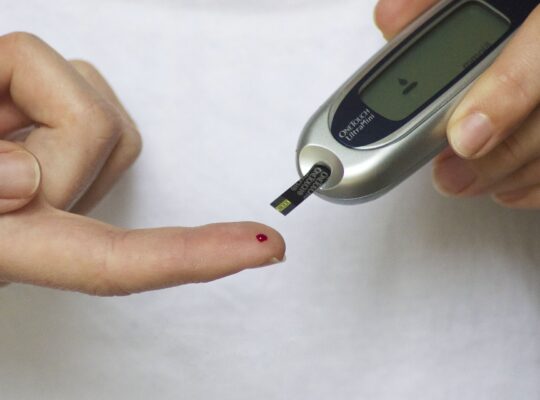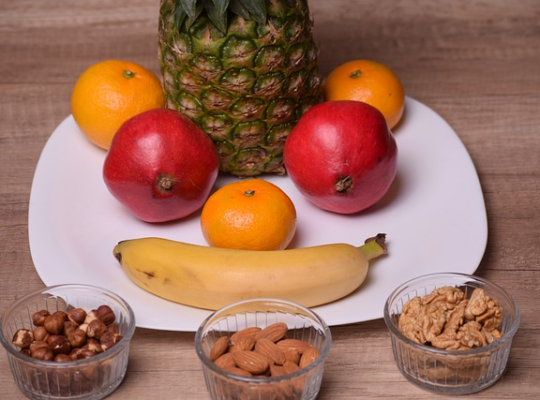
Diabetes is a condition that affects millions worldwide, and while medication can be necessary to manage it, many natural remedies can also help stabilize blood sugar levels. These remedies don’t replace conventional treatment but can support a balanced approach to managing diabetes alongside proper diet, exercise, and medication as advised by a healthcare provider.
Here are some effective, research-backed natural remedies to help manage diabetes naturally.
1. Cinnamon
Cinnamon is a popular spice that has shown promise in lowering blood sugar levels by improving insulin sensitivity. Studies have shown that cinnamon can slow the breakdown of carbohydrates in the digestive tract, preventing blood sugar spikes after meals. It also increases insulin sensitivity, helping glucose move more effectively into cells.
- How to Use It: Add a teaspoon of cinnamon to your daily diet by sprinkling it over oatmeal, yogurt, or mixing it into tea. However, stick to Ceylon cinnamon over cassia cinnamon as the latter contains coumarin, which can be harmful in high doses.
2. Fenugreek Seeds
Fenugreek seeds are rich in soluble fiber, which helps regulate blood sugar by slowing the digestion of carbohydrates and sugars. Studies have shown that consuming fenugreek seeds can improve fasting blood glucose levels and increase glucose tolerance.
- How to Use It: Soak one to two tablespoons of fenugreek seeds in water overnight and drink the water (along with the seeds) in the morning on an empty stomach. Alternatively, fenugreek supplements are available in capsule form for convenience.
3. Apple Cider Vinegar
Apple cider vinegar (ACV) is known for its blood-sugar-lowering properties. ACV slows the rate at which food leaves the stomach, reducing blood sugar spikes after meals. Additionally, it may improve insulin sensitivity, especially when taken before high-carb meals.
- How to Use It: Mix one to two tablespoons of apple cider vinegar in a glass of water and drink it before meals. Start with small amounts and dilute it well, as its high acidity can harm tooth enamel and cause stomach discomfort if taken in excess.
4. Aloe Vera
Aloe vera, often celebrated for its skin benefits, also has potential in blood sugar management. Studies have suggested that aloe vera can help reduce fasting blood sugar levels and improve HbA1c levels in people with type 2 diabetes. Aloe vera is rich in compounds like lectins, mannans, and anthraquinones, which help regulate blood sugar.
- How to Use It: Look for pure aloe vera juice without added sugars. Drink a small amount daily, and consult your healthcare provider to ensure it doesn’t interact with your medications.
5. Bitter Melon (Momordica charantia)
Bitter melon is a tropical fruit that resembles cucumber and has been used for centuries in Asian medicine for diabetes. It contains compounds that mimic insulin, allowing glucose to enter cells and reducing blood sugar levels. Bitter melon has been shown to reduce blood glucose levels in patients with type 2 diabetes.
- How to Use It: Bitter melon can be eaten fresh, cooked, or juiced. If the taste is too bitter, consider taking bitter melon supplements, which are available in capsule form.
6. Berberine
Berberine is a compound found in several plants and has long been used in traditional Chinese medicine. It’s known for its ability to improve insulin sensitivity, lower blood sugar levels, and support overall metabolic health. Studies have shown that berberine is as effective as some medications for controlling blood sugar, making it a valuable option for diabetes management.
- How to Use It: Berberine is best taken in supplement form, with doses typically ranging from 500-1500 mg per day, divided into 2-3 doses. However, berberine can interact with certain medications, so consult a healthcare provider before starting it.
7. Fiber-Rich Foods
Fiber is a powerful tool for managing diabetes because it slows down the absorption of sugar, helping to maintain steady blood sugar levels. Soluble fiber, in particular, found in oats, apples, and chia seeds, forms a gel-like consistency that slows digestion and prevents spikes in blood sugar.
- How to Include More Fiber: Add fiber-rich foods like vegetables, legumes, whole grains, and nuts to your meals. Aiming for at least 25-30 grams of fiber per day can help manage blood sugar levels more effectively.
8. Chromium and Magnesium Supplements
Deficiencies in chromium and magnesium have been linked to higher rates of diabetes and blood sugar issues. Chromium plays a role in insulin sensitivity and glucose metabolism, while magnesium helps the body’s insulin receptors function effectively.
- How to Use Them: Food sources of chromium include broccoli, barley, and nuts, while magnesium is abundant in leafy greens, nuts, and seeds. If you opt for supplements, consult with a healthcare provider to ensure you’re taking safe and effective doses.
9. Exercise
While not a “natural remedy” in the traditional sense, regular physical activity is one of the best natural ways to control blood sugar. Exercise helps the body use insulin more efficiently and allows cells to take up glucose from the blood. Aerobic exercises like walking, swimming, and cycling, combined with resistance training, can be particularly effective for blood sugar management.
- How to Get Started: Aim for at least 30 minutes of moderate-intensity exercise most days of the week. Even a brisk 10-minute walk after meals can help improve blood sugar levels.
10. Stay Hydrated
Dehydration can increase blood sugar levels due to reduced kidney function, making hydration essential for diabetes management. Water helps flush out excess sugar through urine and supports overall metabolic health.
- Tip: Aim to drink at least 8 cups of water daily, or more if you’re active or live in a hot climate. Avoid sugary drinks and limit caffeine, which can increase blood sugar levels indirectly.
11. Ginger
Ginger has been used traditionally to help control blood sugar levels and improve insulin sensitivity. Its active compounds have anti-inflammatory and antioxidant properties, making it an excellent natural remedy for managing blood glucose.
- How to Use It: Drink ginger tea by steeping fresh ginger in hot water, or add it to meals. You can also consider ginger supplements, but consult with your healthcare provider before adding any new supplements to your regimen.
12. Probiotics
Gut health plays a critical role in managing diabetes, as research has shown that the gut microbiome can affect insulin resistance and inflammation. Probiotic-rich foods like yogurt, kefir, kimchi, and sauerkraut contain beneficial bacteria that improve gut health, helping to stabilize blood sugar levels.
- How to Use It: Include a serving of probiotic-rich food in your daily diet, or consider a high-quality probiotic supplement for additional support.
Final Thoughts
While these natural remedies can be helpful in managing diabetes, they should be used in conjunction with a balanced diet, regular exercise, and any prescribed medications. Diabetes management is highly individualized, and what works for one person might not work for another.
Always consult with a healthcare professional before starting any new supplement, especially if you’re on medication, as some natural remedies can interact with prescription drugs. By making mindful lifestyle choices and incorporating these remedies into your routine, you can take significant steps toward managing diabetes naturally and improving your quality of life.







